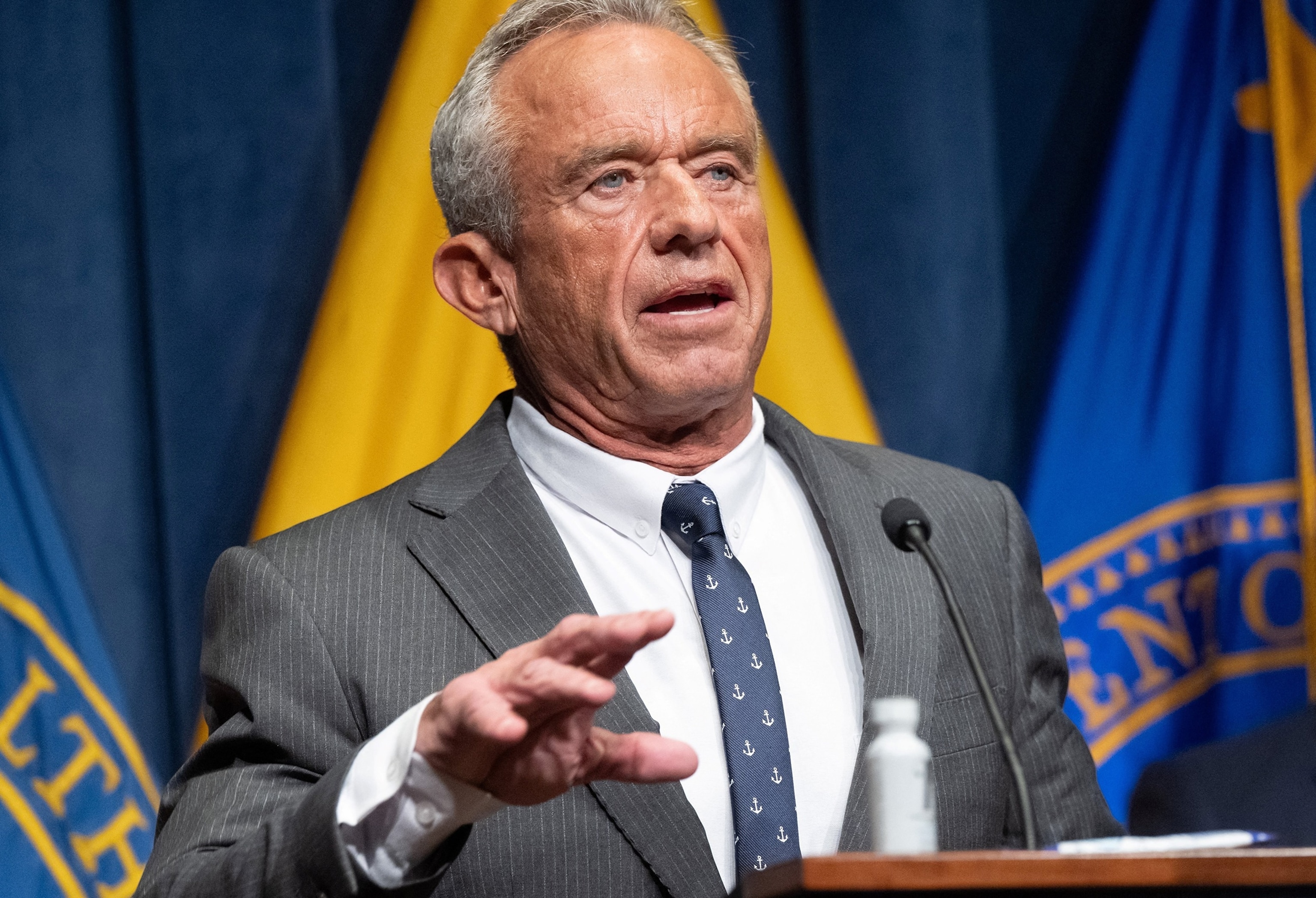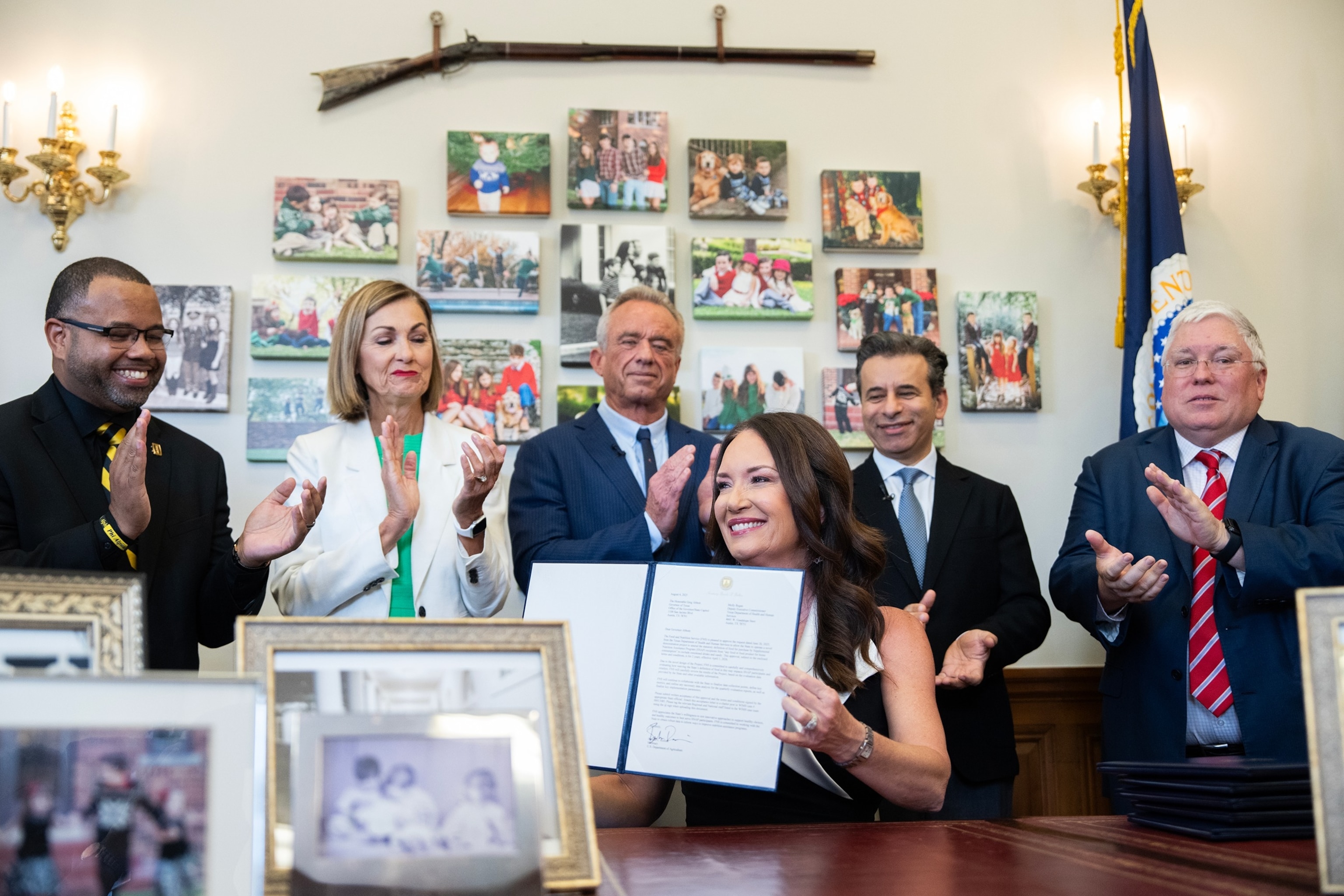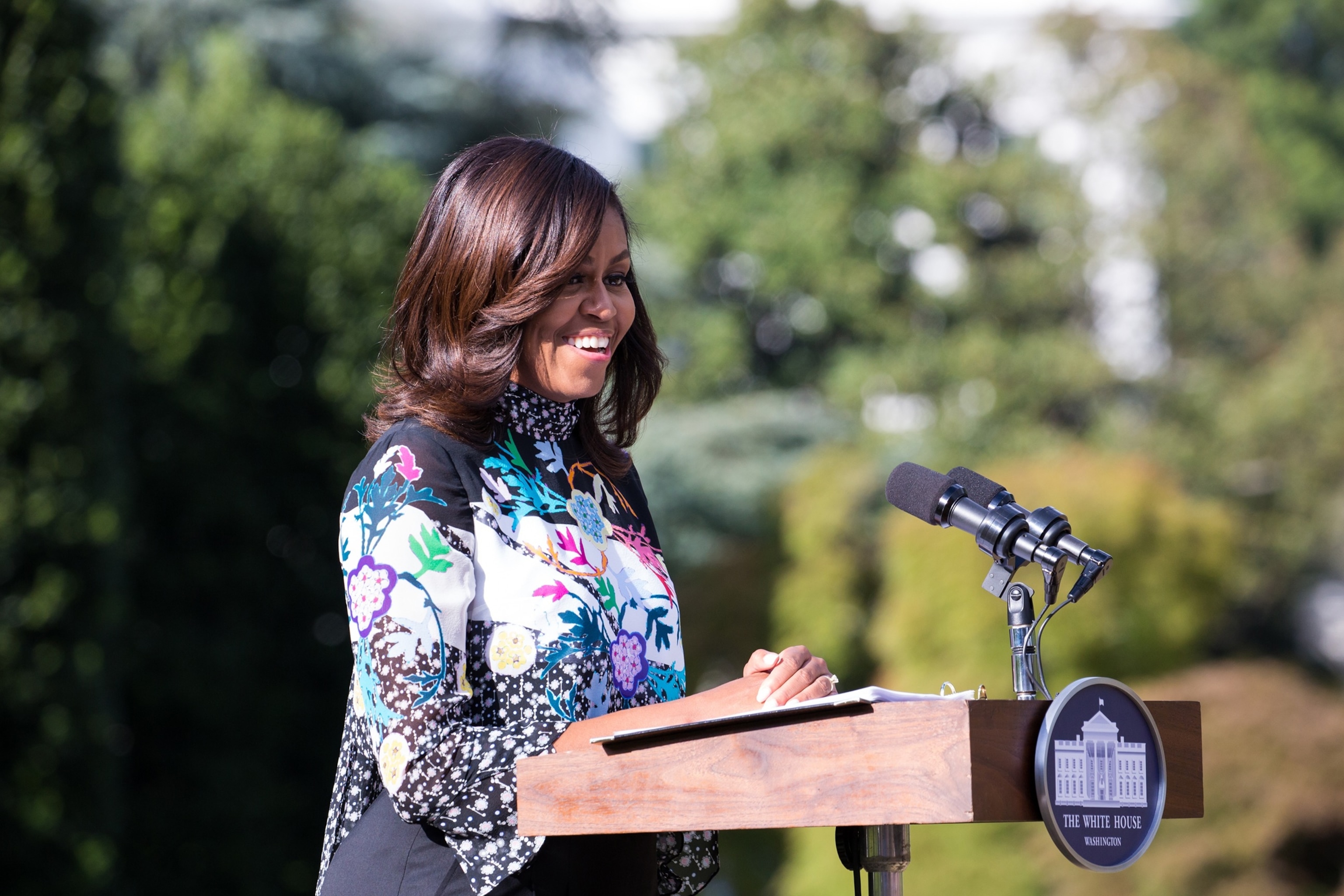‘Traditionally, it was a Democrat issue’: How RFK Jr. is getting left-leaning food laws into deep-red states
Earlier this month, Health and Human Services Secretary Robert F. Kennedy Jr. notched one of his biggest wins of the “Make America Healthy Again” movement when West Virginia became the first state in the country to ban artificial food dyes in school lunches.
Since then, a handful of other Republican governors have raced to join in, banning certain food colorings from kids’ lunches — sometimes prohibiting other chemical additives, too. Some GOP leaders have gone further, slapping warning labels on certain food additives statewide.
Historically the focus of Democrats, including former first lady Michelle Obama — and derided as “nanny state” politics by anti-regulation conservatives — food laws have lately had a windfall of support from the other side of the aisle.
Kennedy’s “Make America Health Again” crusade against food additives, with its strong backing from President Donald Trump, has taken hold in deeply Republican states such as Louisiana, Texas and Oklahoma.
“Traditionally, it was a Democratic issue,” Kennedy told ABC News at a press conference on Monday, adding that he is hopeful that Democrats will continue pass food laws in their states despite the “partisan brand” the movement brings.

West Virginia — which has the second-lowest life expectancy rate in the nation, according to the Centers for Disease Control and Prevention — has taken one of the most stringent approaches, intending to further its ban on artificial dyes and other additives to the whole state by 2028.
Its law closely mirrors those passed by California Democrat Gov. Gavin Newsom, who signed similar bills into law before Kennedy and Trump took office. The California Food Safety Act passed in 2023, which banned four additives statewide, and a second California law passed in 2024, which banned six specific synthetic food dyes from school lunches. Both take effect in 2027.
“Sometimes you find that there are unorthodox partners, but the key is what you’re able to accomplish,” West Virginia Gov. Patrick Morrissey, a Republican, told ABC News. If the changes improve health outcomes for West Virginians, it’ll be “a win,” he said.
West Virginia is one of 10 Republican states that have taken steps to regulate food since Kennedy took office. Just two Democratic governors, Arizona Gov. Katie Hobbs and Delaware Gov. Matt Meyer, have signed similar laws in that same timeframe.
At the same time, 11 Republican states have applied to the federal government for waivers to prohibit soda or candy from the food benefits program for low-income Americans, SNAP. The sole Democrat-led state to join in on the SNAP policy change is Colorado.

More states are waiting in the wings, said John Hewitt, senior vice president of state affairs for the Consumer Brands Association, which represents major food companies such as Kraft Heinz.
There’s been at least a tenfold increase in the number of food bills introduced or discussed at the state level, he said, and there’s been a “substantial shift” in which states are interested.
‘Copy and pasting’ Democrats’ food laws into red states
Thomas Galligan, principal scientist for food additives and supplements at the Center for Science in the Public Interest, has worked with states such as California and New York on systemic food reform.
And although CSPI has frequently clashed with Kennedy on his policies at HHS, particularly around vaccines, Galligan said on food, “it’s fair to give credit where it’s due.”
“I mean, the Trump administration, under RFK Jr., has really elevated this issue on the national stage,” he said.
But Galligan pushed back on the characterization that it’s part of Kennedy’s “Make America Health Again” movement, pointing to California’s laws, before Kennedy’s tenure, as the blueprint.
“Most of the bills that we’re seeing are really copy and pasting,” Galligan said.
Why are food laws different for Republicans this time?
For conservatives such as Jeff Singer, a senior fellow at the Cato Institute who studies health policy, the new Republican-led laws around food are a far cry from the days of protesting Obama’s “Lets Move!” campaign and former New York City Mayor Michael Bloomberg’s attempt to ban Big Gulp soda.

“I clearly remember all of the criticism, particularly on right-wing media, of Mayor Bloomberg,” Singer said. “All the attacks on Michelle Obama for trying to dictate how people should eat, and dictate what should be in school lunches.”
“They were basically saying, ‘keep your nose out of our private affairs, this is not a role for government, we don’t need a nanny state.’ But all of a sudden, they’re all for a nanny state because it was a very good political move to bring RFK into the MAGA movement,” Singer said.
The lack of conservative pushback this time around has left the food industry, a powerful lobbying force, as the primary barrier to passing legislation, said Meghan Enslow, policy associate for the Center for Science in the Public Interest.
“In all of these states, blue and red, there’s been immense lobbying and money spent by the food industry against these bills. And I do wonder if that MAHA narrative is part of what’s allowed red states to ignore that money and the voice of the food industry and pass these bills,” Enslow said.
Kennedy said that a few Democratic governors have told him privately that they intend to get on board.
“They don’t want to call it MAHA because they think that that’s become kind of a partisan brand. I don’t care what they call it,” Kennedy said. “They want to protect their children. And there’s no such thing as Democratic children or Republican children. They’re our children, and we should all care about them.”